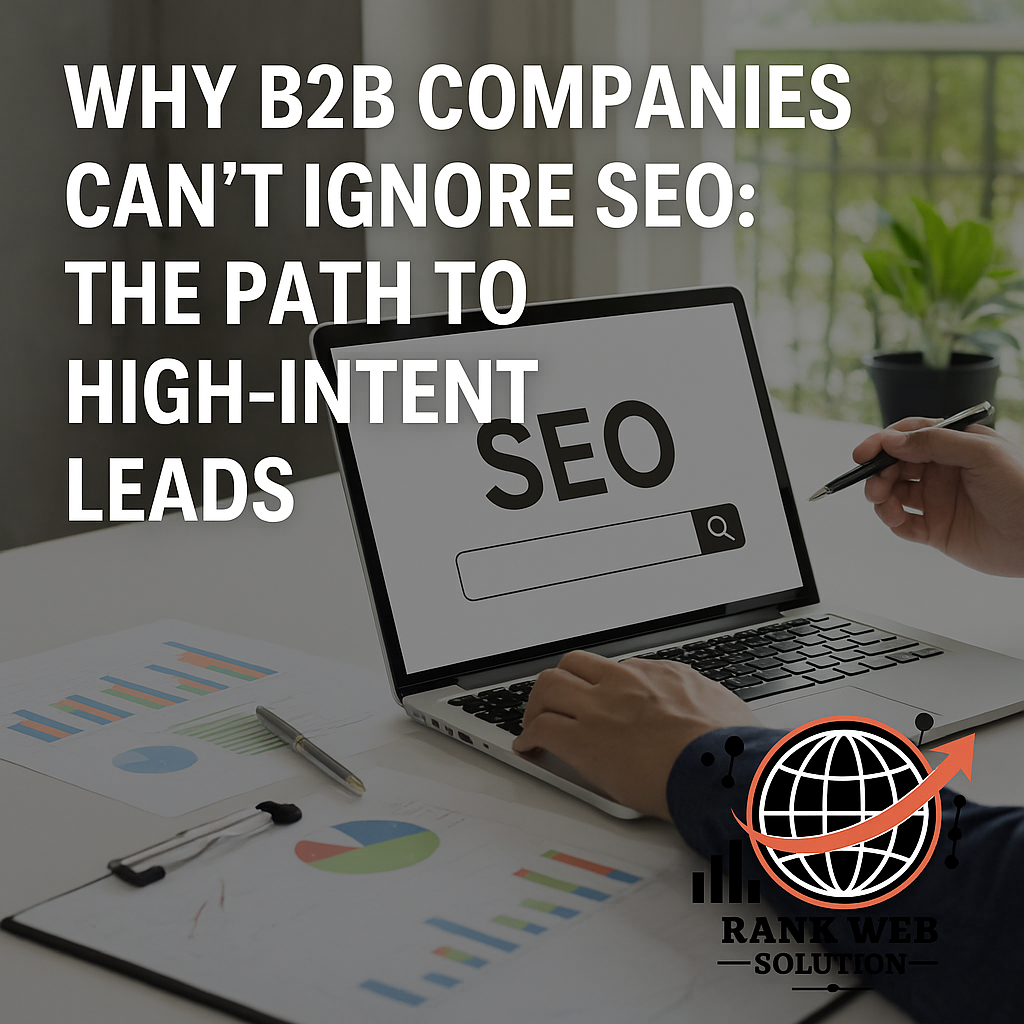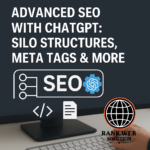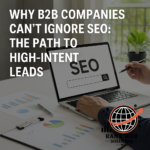In today’s hyper-competitive digital world, business-to-business (B2B) companies are under increasing pressure to attract the right audience, generate qualified leads, and shorten lengthy sales cycles. While many B2B brands invest heavily in paid ads and outbound tactics, they often overlook one of the most powerful long-term strategies: Search Engine Optimization (SEO).
Unlike traditional marketing approaches, SEO is not just about boosting traffic—it’s about driving high-intent leads that are actively searching for your solutions. Ignoring SEO in a B2B landscape means missing out on decision-makers who are already deep in their buyer journey.
Let’s explore why SEO is critical for B2B success, how it differs from B2C strategies, and what you can do to start building a lead-focused SEO framework.
The B2B Buyer Journey Is Longer—And SEO Matches That Pace
Unlike B2C customers who often make quick purchase decisions, B2B buyers typically go through a longer, more research-intensive process. Multiple stakeholders are involved, budget approvals are required, and trust must be built over time.
This is where SEO comes in. High-quality, search-optimized content helps guide potential clients through each stage of the funnel—from awareness and consideration to decision. When your site ranks for key informational and transactional queries, you meet buyers exactly where they are.
For instance, blog content targeting early-stage queries like “how to improve supply chain efficiency” attracts curious decision-makers. Meanwhile, product pages optimized for “enterprise supply chain management software” bring in buyers ready to take action.
Why High-Intent Leads Matter More in B2B
Leads with a high level of intent are individuals who are actively seeking answers to particular issues. They’re not just browsing—they’re comparing vendors, downloading whitepapers, signing up for demos, and contacting sales teams.
B2B SEO, when done right, helps you appear in search results for these exact queries. That visibility positions your brand as a trusted expert. Plus, traffic from high-intent searches typically converts at a much higher rate than generic visitors from broad advertising campaigns.
When you rank for strategic keywords, you’re not interrupting the user’s experience (like in outbound marketing)—you’re aligning with their needs at the right moment.
Key Differences Between B2B and B2C SEO
B2B SEO requires a more targeted and nuanced approach compared to B2C. Here’s how:
- Search Volume vs. Search Value: B2C SEO often focuses on high-volume keywords. In B2B, the volume might be lower, but the value per lead is significantly higher.
- Keyword Intent: B2B keywords tend to be more technical, niche, and tied to specific problems or solutions. Understanding intent is critical.
- Content Depth: B2B audiences expect in-depth content—think whitepapers, industry reports, and case studies—not just product descriptions or landing pages.
- Conversion Path: The goal isn’t always an immediate sale; it might be a form submission, a demo request, or a download. SEO should support these micro-conversions too.
SEO Is the Foundation for Scalable Lead Generation
Paid ads can bring in immediate traffic, but the moment you stop spending, the leads dry up. Conversely, SEO offers compounded returns. When your content ranks well in search engines, it continues to drive relevant traffic without ongoing costs.
Moreover, organic search builds authority and credibility—something that’s crucial in the B2B space where trust and long-term relationships drive purchasing decisions.
At Rank Web Solution, we’ve seen firsthand how a consistent SEO strategy transforms website traffic into a steady stream of qualified leads.
How AI Is Transforming B2B SEO
Today, AI for SEO is making strategy execution more intelligent and efficient. From analyzing keyword intent to automating content suggestions and identifying optimization opportunities, AI tools help marketers stay aligned with both search algorithms and user behavior.
If you’re interested in learning how AI can elevate your SEO game, we’ve covered practical tools and strategies in a related guide—feel free to explore that resource to see what’s possible.
Practical Tips for B2B Companies to Get Started
If you’re ready to invest in SEO for your B2B business, here are a few tips to help you hit the ground running:
- Conduct Buyer-Centric Keyword Research
Focus on keywords that align with your customer’s pain points, job roles, and stages in the buyer journey. Tools like SEMrush, Ahrefs, and Google Search Console can help identify high-value opportunities.
- Create Long-Form, Value-Driven Content
Develop detailed blog posts, case studies, and how-to guides that educate and inform your audience. Focus on expertise and clarity.
- Optimize for Technical SEO
Make sure your website has a clear URL structure, loads swiftly, and is responsive. A technically sound website enhances crawlability and user experience.
- Build Trust with Authoritative Backlinks
Partner with industry publications, guest post on relevant blogs, and list your business in professional directories. Backlinks from reputable sources boost your site’s authority.
- Track Metrics That Matter
Instead of obsessing over traffic volume, monitor metrics like lead quality, time on page, and conversion rates. These provide more meaningful insights in a B2B context.
Conclusion: SEO Isn’t Optional for B2B—It’s Essential
For B2B companies, SEO is more than just a digital marketing channel—it’s a strategic investment in long-term lead generation. By focusing on search intent, creating meaningful content, and optimizing with the right tools (including AI), businesses can consistently attract, engage, and convert high-value prospects.
The digital landscape is only getting more competitive. The earlier you prioritize SEO, the stronger your foundation for sustainable growth and high-intent lead generation will be.




